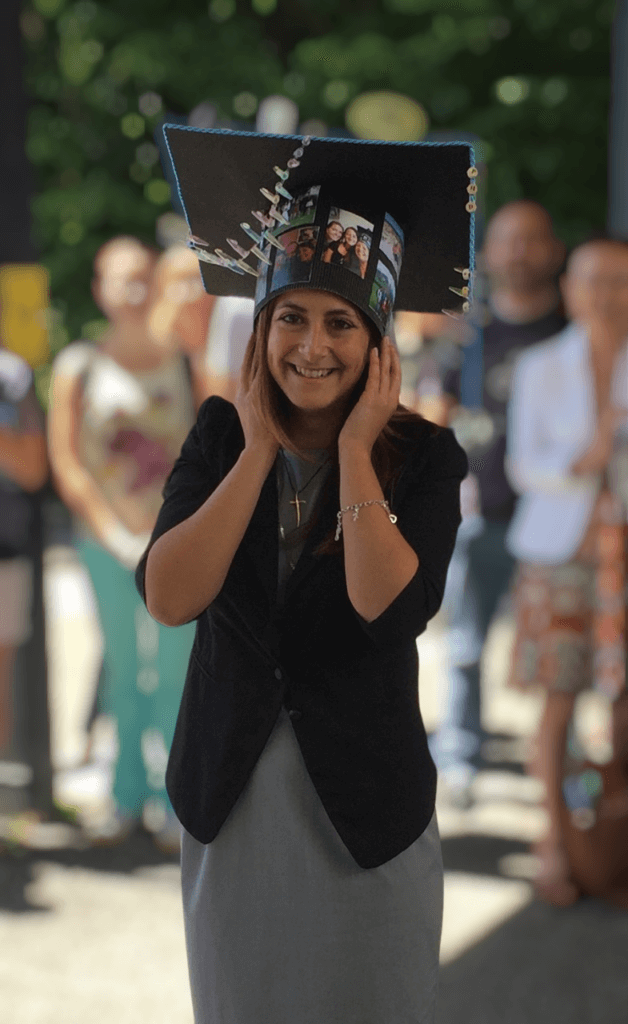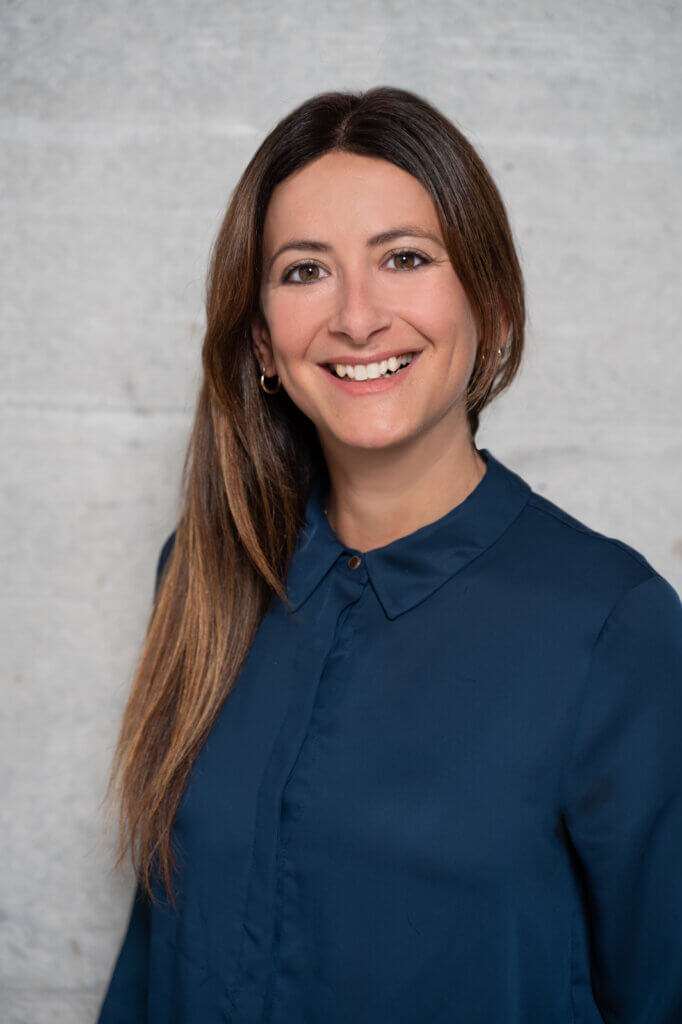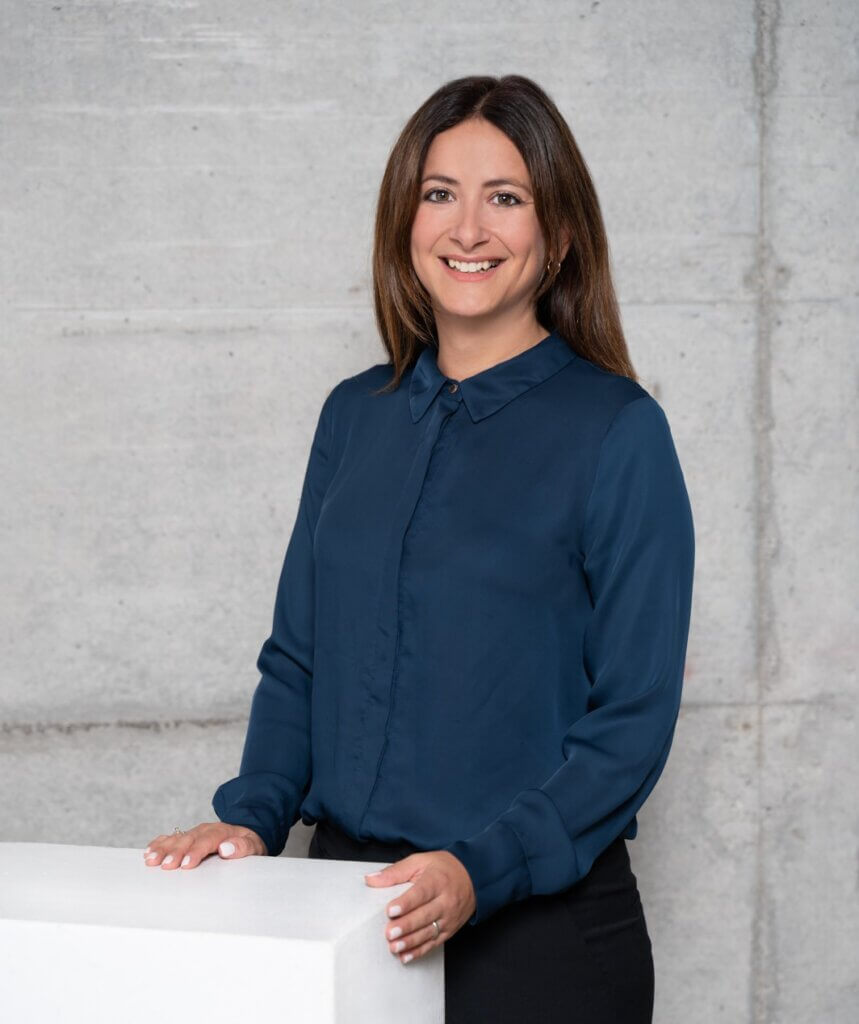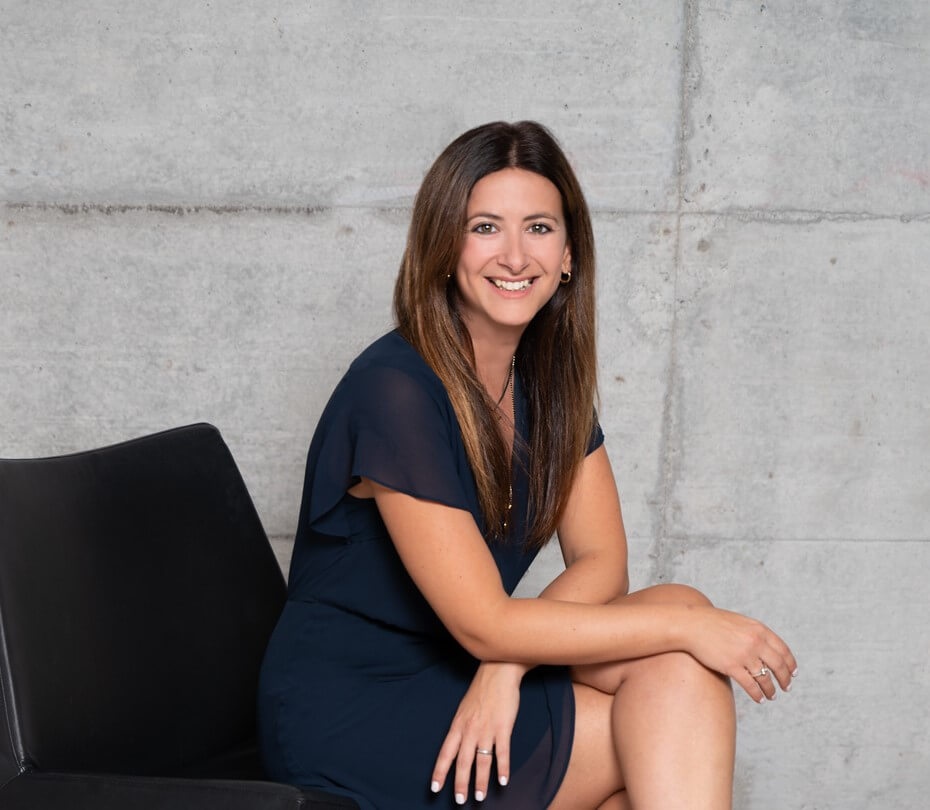Dr Sarah Bosshard joined our Clinical team as a Senior Consultant in August 2022. A keen scientist, devoted mum, and passionate painter, Sarah shares with us her career journey to date, how she balances work with family life, and her positive outlook on what the future holds for the clinical field…
When did you first find your passion for science?
I’ve always been interested in science – especially biology and chemistry. I think it comes from my parents – my father is a chemist and my mum worked at a pharmacy. I remember spending a lot of time at the pharmacy, and this first-hand exposure to a medical field helped make it an easy decision to study either medicine or biology. I wasn’t sure I’d be comfortable opening people up (!), and I was more into the science behind the medicine, so I opted for biology.
On a more personal note, another reason for pursuing this path comes from my grandfather’s passing. He died of cancer when I was 13, and since then, I became interested in knowing more about disease evolution. And so, my goal soon became a career in cancer research, and studying biology facilitated that.
Looking back, it’s one of the best decisions I’ve ever made. My studies were so interesting – I could really deep-dive into understanding different diseases, their proposed molecular mechanisms, and approaches to cure them. So, I chose to focus on Molecular and Cellular Biology for my master’s at the University of Zurich.
With a keen interest in infectious diseases, as I learnt more about viruses I was fascinated. I had the chance to study at two biology labs to learn more about how these tiny agents could infect cells and cause some very serious illnesses.
What prompted your decision to do a PhD?
After my master’s, I wanted to continue with my studies with a PhD because I enjoyed the lab work and was so interested in the science: having a hypothesis, really digging deep to find answers, and doing my own experiments to prove or disprove them.

I wanted a new challenge, so whilst it wasn’t one of my strongest areas, I decided to go into biochemistry and was accepted into the Paul Scherrer Institute (PSI) to do a PhD in structural biology.
I loved the interdisciplinary work during my PhD – studying different types of proteins and their mechanisms causing different diseases, partnering with great scientists from other European groups, participating in congresses, and producing five publications.
How did you transition into industry?
PSI is a fantastic place for structural biologists – not only due to its in-house particle accelerator, but also because of its great applied setting – my PhD lab’s work with tubulin for example, was the beginning of a successful collaboration between academia and industry. More broadly, the Institute has been involved in some amazing breakthroughs, such as proton therapy to treat different cancer types, and the development of the pixel detector for CERN’s CME experiment involved in the detection of the Higgs Boson.
The whole mindset at PSI was focused more on applied science, and they encouraged people to start their own companies – nurturing their clever ideas and stimulating innovation. The Institute is also in the vicinity of an innovation park that’s partially funded by industry, which is a great asset that supports this mindset.
I enjoyed my PhD, but the collaborations with companies had piqued my interest in the economic side to the science, so I decided to make the switch to industry.
During a Life Sciences Day at the University of Zurich, I met with consultants from a company called DHC AG that implements SAP and performs services in computer system validation in regulated environments for a variety of companies. My first industry role was as a Junior Consultant at DHC AG. As well as providing the chance to work with a great team, my time there delivered useful insight into how Pharma and MedTech companies work.
How did your career in clinical begin?
About a year after initially applying to Zimmer Biomet for a clinical position (but taking the role at DHC AG), I was contacted by the clinical team manager about a new open position as a Junior Clinical Project Lead. I had a great connection with the manager, and she really made me want to join the company. I also felt motivated by the opportunity to give something back to the patients with the company’s products and my work.

The role offered interdisciplinary and scientific work, as well as plenty of stakeholder communications – liaising with surgeons and study coordinators, regulatory and / or ethic committee personnel, as well as internal team members from different departments such as regulatory, post market surveillance, biostatistics, sales, or medical writing.
I was responsible for multiple study types which also allowed me to travel frequently to initiate or monitor sites.
The company’s culture was great. I was really empowered by my managers, so after a year in the role, I was promoted to Clinical Project Lead, before taking a Team Leader position in the MDR team. The more senior role was a good challenge. I had never led people before and the experience broadened my perspective. I enjoyed working with different characters and seeing how different people approach problems and challenges; but most of all I enjoyed seeing team members grow and being able to celebrate their successes together. After two years my manager left her post, and I received the opportunity to take over her position.
What is it about the clinical field that keeps you motivated?
Working in clinical affairs allows you to see close-up how the products produced by the company you work at directly affect people’s lives. I was amazed when I first saw patient questionnaire data – realising that I was looking at real life data from the hospital, not a publication.
Two stand-out moments in my career to date really reinforce my motivation. One of the first studies I was responsible for involved cleaning data for a ten year study on hip products. The data included the pre-op and post-op pain scores for elderly patients suffering with osteoporosis or arthritis. They had such a high pain score before the operation, but afterwards most of them were nearly pain free. This was such a lovely experience for me, and I thought in the moment – “I’m in the right job here”.
The second experience was during my work on a recent project involving niche products designed for different patient populations including children. I cleaned the data, and it was so confronting to see the range of disorders that these children were suffering with. Simultaneously, I was happy to see that the devices we were working on could help reduce some of the symptoms and give back some quality of life to them. Surely, there were other aspects that couldn’t be fixed which was tough, but still, the positive effects often outweigh the negative results, and that keeps me motivated. For me, especially since becoming a mother, seeing how products positively impact children’s lives is very rewarding.
How do you balance motherhood with your career?
In 2018 I became pregnant – which naturally changed a lot of things in my life! But during maternity leave I was encouraged to apply for the Team Leader position in the MDR Clinical Team. Having a child doesn’t necessarily mean you fundamentally change as a person – you still have ambitions. You still want to do good work with your team and for your company. And you still want to be appreciated professionally. But of course, you have this other important duty now as well! I was happy and grateful for the support and opportunity I received to pursue my wishes in both my personal and professional life.
There are of course challenges with trying to “do it all” though. The lack of sleep in those early years is tough to handle in a work environment. I really admire any parent who deals with sleep deprivation whilst giving their best in their job! Realising that I wasn’t the only one juggling parenthood and work life, having supportive managers and colleagues, and setting boundaries to compartmentalise quality work time and quality personal time all helped with achieving a good balance. There’ll always be exceptions – especially if you’re in a special situation like a pandemic, with deadlines to meet, and you’re in a leadership position where you need to be there for your team at work as well as your child at home. Luckily, I’ve always had our parents supporting us with flexible day care, as well as a great team at work that supported and acknowledged my situation.
Outside of work, I also have many hobbies that help me stay centred. My husband and I have dived in many sites around the world, and I love skiing. Both give me a sense of freedom and peace.

I’ve also enjoyed painting since I was a child and paint a lot with my son now. This colourful example is one of my favourites of his.
I find that painting counterbalances the stressful side to life. It’s calming, creative, and it’s just for me. I can direct it, and if I don’t like the outcome, I can simply paint over it. It’s meditative and freeing in that way.

What brought you to Congenius?
After over five years at Zimmer Biomet in the same department, I was ready for a new challenge.
When I came across the option to apply for a Senior Clinical Consultant position with Congenius and read about the company values, I felt I could identify well with them. The role offered the chance to experience being part of a smaller company whilst working for larger customers, and provided an exciting opportunity to see how other MedTech companies implement clinical strategies for varied product classes and types.
The team was also a big selling point. Stéphanie and Jörg both “got me” with their personality and professionalism at the first meeting, and I’m really happy to be here!
Let’s talk about the future. What are some of the challenges we’ll soon face in the clinical space, and how is the field evolving to overcome those challenges?
In the clinical field, a lot of things evolve simultaneously. Short term, there are the obvious MDR challenges to overcome, including the MDR certification of the product portfolio.
Prominent challenges in clinical studies as I see, are around patient enrolment and increasing patient inclusivity, diversity, and equality: making sure we have the measures in place to achieve sufficient, unbiased, and fully representative results from our clinical trials and studies – not from one race or one region, but truly global information. It’s traditionally been quite a challenge to recruit an adequate number and variety of patients onto clinical trials and PMCF studies, due to different follow-up times that some people can’t dedicate the necessary time to, for example those who live in rural areas, older patients, or those with disabilities or full-time workers.
In my view, the concept of decentralised clinical trials and studies is key in overcoming these challenges. In a decentralised clinical trial (DCT), some, or all of a clinical trial’s activities occur at locations other than a traditional clinical trial / study site. These alternate locations can include the participant’s home, a local healthcare facility, or a nearby laboratory. Utilising digital health technologies like smart watches or telemedicine would further help with the above mentioned challenges. Hybrid clinical trial / study concepts are already in place – for example, during Covid, we were urged to find ways to avoid patients having to return to sites unless it was absolutely necessary.

Widespread use of decentralised clinical trials could mark a positive change for the industry and the healthcare system.
The concept benefits businesses, hospitals, and ultimately the end users.
It reduces cost for MedTech and Pharma companies, it saves time for the surgeons, and patients can complete certain visits or end points more conveniently at home, using wearables or apps, or via telemedicine.
So, whilst Covid was of course devastating, one positive to come out of the pandemic was the acceleration of a decentralised or virtual approach.
As you reflect on your career so far, who or what has inspired you?
I’ve always been inspired by great leaders, and I’ve been lucky to have had such leaders that focused on empowering their team members. I’m grateful for the two female leaders in particular who really empowered me to pursue my career within an international company.
I think it’s important to understand the individual needs of each of your team members, as well as the needs of the team or company as a whole, and to motivate each person in a way that’s relevant to them as a unique individual. I’m also inspired by people who can communicate clearly and stand their ground with their principles. I find I learn a lot from people who have well-informed arguments, and I think you need varied debate to get to the best solutions.
Throughout my career, including right now, I’ve been fortunate to work with talented people who have managed these things so well, and I continue to be inspired by those who demonstrate this special variety of skills and qualities.

